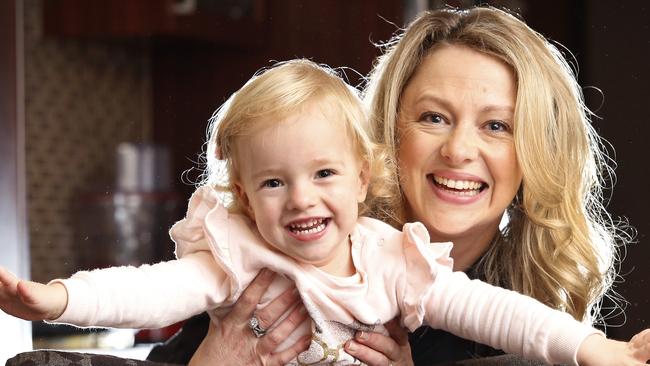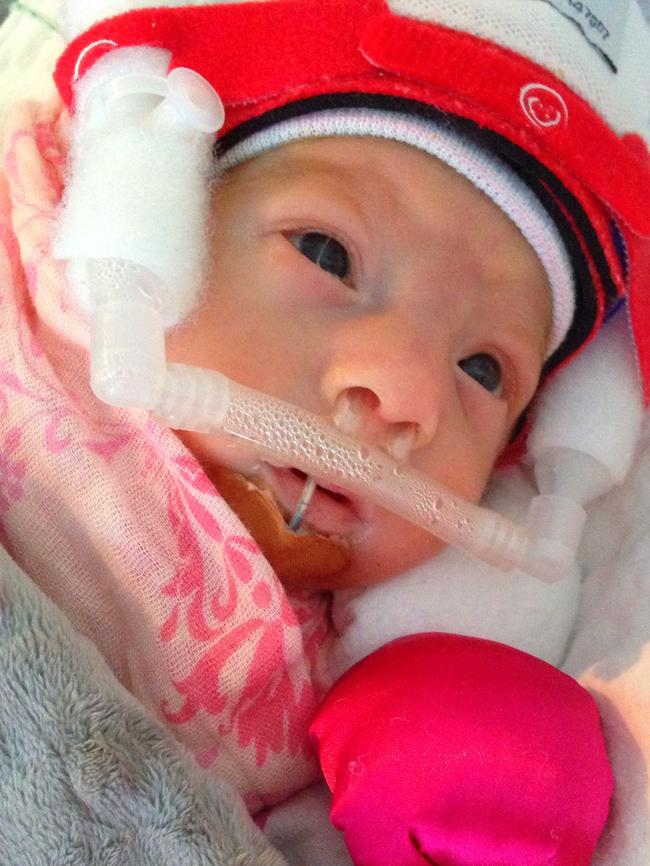Drug breakthrough a boon for premature babies with lung damage
PREMATURE babies with irreversible lung damage could soon be offered the first preventive treatment on their first day of life, after successful preclinical trials.

News
Don't miss out on the headlines from News . Followed categories will be added to My News.
PREMATURE babies with incurable lung damage could soon have a preventive treatment on their first day of life.
Researchers from the Hudson Institute of Medical Research have successfully prevented irreversible lung damage in animals using a month-long daily dose of a rheumatoid arthritis drug.
PREMATURE BABIES DEPRESSION HITS MUMS AND DADS, RESEARCH FINDS
PREMATURE BABY SKIN-TO-SKIN CONTACT WITH PARENTS BENEFICIAL
National Heart Foundation of Australia Fellow Dr Claudia Nold said no safe or effective treatment existed for bronchopulmonary dysplasia, which affected up to 60 per cent of pre-term babies.
The inflammatory disease causes severe injury to lung tissue in the first few days of life, and prevents growth in the underdeveloped lung.
It can be exacerbated by the mechanical breathing support keeping the baby alive.
“Pre-term babies’ lung aren’t fully developed and are not prepared to cope with oxygen,” Dr Nold said.
“This can cause an inflammatory response because the lung is irritated.”
The team, also being led by neonatologist Associate Professor Marcel Nold and senior scientist Dr Ina Rudloff, previously found the anti-inflammatory drug interleukin 1 receptor antagonist was effective at preventing BPD by dampening inflammation.

The latest study, published today in the Journal of Cellular and Molecular Medicine, investigated the ideal dose and timing of the drug.
Using mice born with lungs comparable to human babies at 24-38 weeks gestation, they found the drug was most effective when given immediately after birth, before the disease could establish itself.
“These babies have a lot of serious consequences,” Dr Rudloff said.
“They have a high risk of getting infections, they are hospitalised frequently and can die from something as harmless as a common cold.
“This finding will give hope to a lot of babies who have had a rough start to life.”
Merryn Csincsi’s daughter Marlowe was diagnosed with BPD after needing significant breathing support for three months after her birth at 27 weeks.
Ms Csincsi said it meant her daughter, now 2, continued to be at risk of infections.
She just had an eight-night hospital stay after developing Respiratory syncytial virus.
“This discovery is a critical development,” she said.
“Had this treatment been available, perhaps she would have weathered this latest storm far better.”


